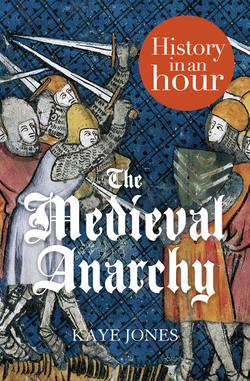Читать книгу The Medieval Anarchy: History in an Hour - Kaye Jones, Kaye Jones - Страница 8
ОглавлениеStephen the Usurper
Matilda was in Anjou at the time of her father’s death. Father and daughter had recently argued over the ownership of several castles that were allegedly promised by Henry to the couple after their wedding. For reasons unknown, Matilda did not act to secure her inheritance when she heard of her father’s passing. However, Stephen of Blois, Henry’s nephew, took the initiative and despite warnings of a severe storm, set sail immediately from Blois to march on London. Popular among the citizens, they welcomed Stephen and he rewarded them with commune status, a privilege granting greater control over the city’s affairs. In return, they swore an oath of fealty and elected him as their chosen king.
With the support of the people secured, Stephen headed to Winchester. Here, and possibly with the help of his brother, Henry, Bishop of Winchester, Stephen gained the support of Roger, Bishop of Salisbury, and William Pont de l’Arche, the royal treasurer. Stephen encountered some difficulty in persuading William Corbeil, Archbishop of Canterbury, to perform the coronation ceremony. Probably mindful of his oath to Matilda, it was only when Stephen made promises to uphold and protect the Church that he was convinced otherwise. After all, the country needed a ruler and Matilda was nowhere to be seen.
On 22 December 1135, Stephen of Blois was crowned in a ceremony at Winchester where he was anointed with holy oil and swore to uphold all the ‘liberties and good laws’ enacted by his predecessors. When news of the coronation reached Normandy, the local barons immediately accepted Stephen as their new duke.
King Stephen
As in Normandy, the majority of English barons were happy to have Stephen as their new ruler. He was popular, well-liked, and regarded as an efficient and capable man. A few men still remained who intended to honour their oath to Matilda, and so Stephen set about winning them over. One of the most resistant was Robert, Earl of Gloucester; he took until Easter to pay homage to the new king. Finally, just one leading figure remained who was not yet persuaded.
